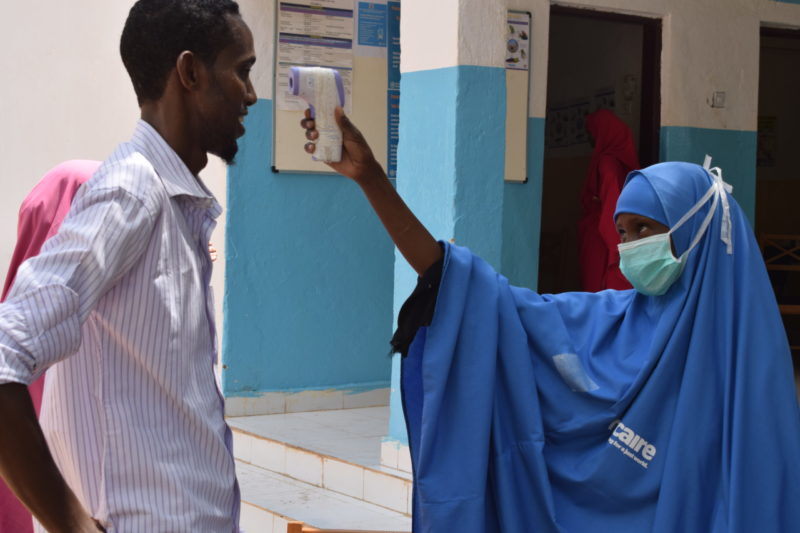
Although data science is still a relatively new field, its potential for the humanitarian sector is vast and ever-changing. We caught up with one of MapAction’s Data Scientists Monica Turner to discover how data science is evolving, the impact of COVID-19 on her work and how predictive modelling could see disaster funding being released before a disaster has occurred.
Interview by Karolina Throssell, MapAction Communications Volunteer
How did you get into data science?
I have a background in Astrophysics but wanted to transition into data science, so I started volunteering with 510 global which is part of the Netherlands Red Cross. This was my first experience in the humanitarian sector, and I was immediately hooked. After working briefly as a data scientist at a technology company, I began working at MapAction in March 2020. As part of my work, I am seconded to the Centre for Humanitarian Data in the Hague, which is managed by the United Nations Office for the Coordination of Humanitarian Affairs (OCHA).
What is the role of data science at MapAction?
Even though one of MapAction’s primary products is maps, these are created by combining different data sets. So, while the explicit presence of a data scientist at the organisation is new, MapAction has fundamentally always been doing data science on some level. With this new role, the hope is to both formalise the current data science practices, and expand our analytical capability, ultimately shifting our role from data consumer to having an active role in the development and improvement of humanitarian data sets.
As a data scientist, you often have to wear many hats – from data cleaning to model development to visualisation. With the Moonshot project, we are looking to automate the creation of seven to nine key maps for 20 countries. One of my first tasks is to design and build a pipeline that downloads, transforms, and checks the quality of all the different data sets that make up these key maps. The details of this pipeline will be the subject of a future blog post.
How has COVID-19 impacted on your work?
One of MapAction’s strengths is the field work that we are able to do during an emergency as well as the remote support we provide. However, as COVID-19 has limited the ability to travel, the paradigm has shifted and we need to rethink how we respond to emergencies overall. In particular, we are working to expand the types of products that we offer to our partners, as the demand increases for more remote-oriented products such as web-based dashboards.
At the Centre for Humanitarian data, in collaboration with the Johns Hopkins Applied Physics Laboratory, we’ve been developing a model relating to the spread of COVID, to help low- and middle-income countries plan their responses.

One of the main challenges of modelling COVID-19 is the novelty of the disease. Since there is no historical data, model validation becomes much more challenging. Additionally, the number of cases and deaths is a crucial input to the model. With higher income countries, more testing is done so the data we need is there, however the availability and quality of this data in low- and middle-income countries poses a further hurdle. Nevertheless, even with these caveats it is still very valuable to provide low- and middle-income countries with a tailored scenario-building tool for developing their COVID response.
Where is data science heading?
Predictive analytics will play a much larger role in the future of data science. The UN is currently working on a huge project to provide funding for predictive models that will enable it to release funding from the Central Emergency Response Fund (CERF), to help communities prepare and protect themselves from disasters before they occur. After a successful pilot project in Bangladesh, we plan to extend our model validation to other types of disasters such as cholera and food insecurity.
At MapAction, the Moonshot will lead a shift towards preparedness and enable us to develop methods to assess the completeness and quality of the data going into our maps. Our hope is that with this emphasis on data analysis, we will be able to provide meaningful contributions to a wide array of humanitarian data sets. Additionally, we are hoping to build an analytics team, and will be recruiting data science volunteers in early 2021, so check our website and sign up to our newsletter to find out how you can apply. And if you can contribute in other ways to our data science work, please contact us!
MapAction’s Data Scientist is funded by the German Federal Foreign Office.
